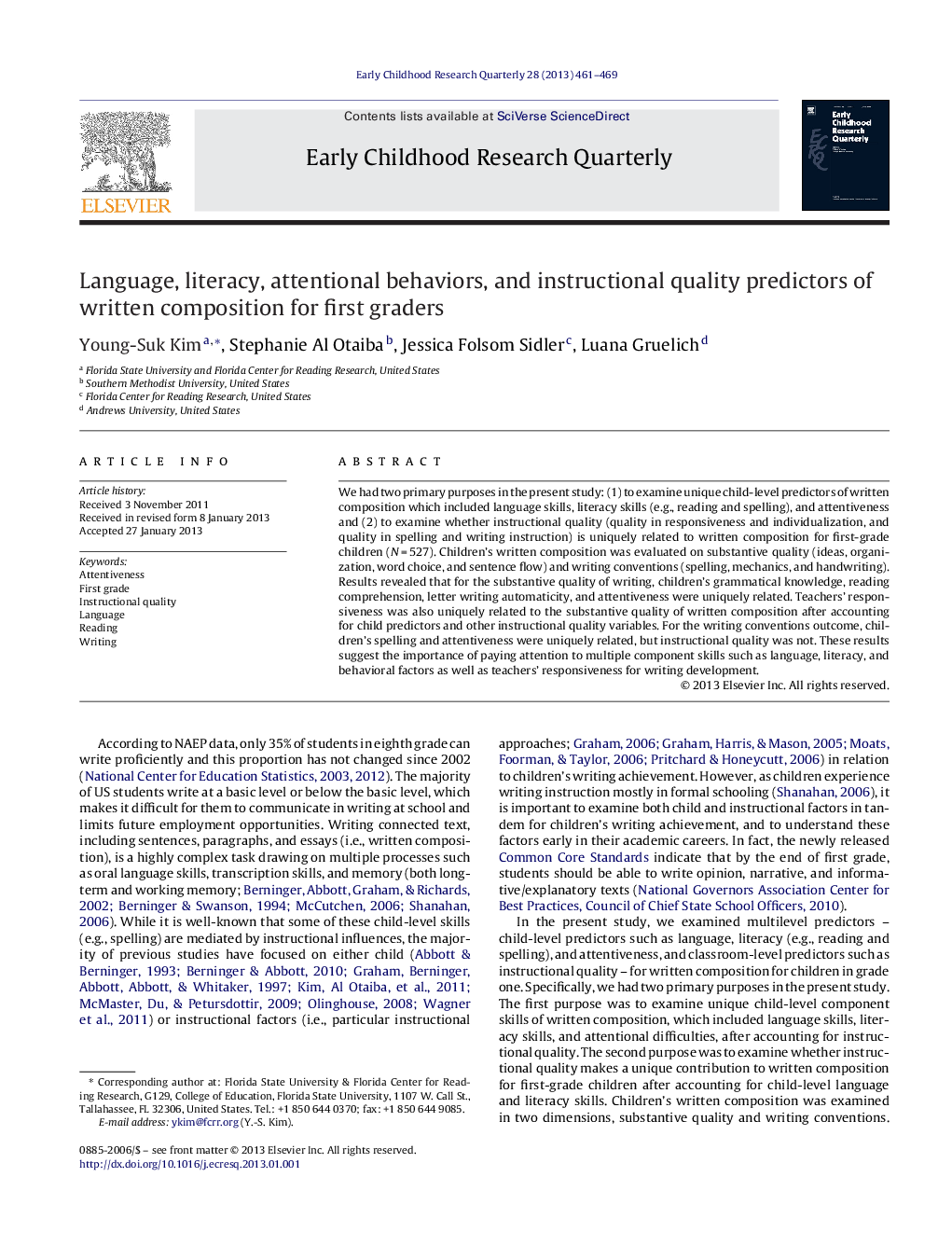| Article ID | Journal | Published Year | Pages | File Type |
|---|---|---|---|---|
| 353942 | Early Childhood Research Quarterly | 2013 | 9 Pages |
We had two primary purposes in the present study: (1) to examine unique child-level predictors of written composition which included language skills, literacy skills (e.g., reading and spelling), and attentiveness and (2) to examine whether instructional quality (quality in responsiveness and individualization, and quality in spelling and writing instruction) is uniquely related to written composition for first-grade children (N = 527). Children's written composition was evaluated on substantive quality (ideas, organization, word choice, and sentence flow) and writing conventions (spelling, mechanics, and handwriting). Results revealed that for the substantive quality of writing, children's grammatical knowledge, reading comprehension, letter writing automaticity, and attentiveness were uniquely related. Teachers’ responsiveness was also uniquely related to the substantive quality of written composition after accounting for child predictors and other instructional quality variables. For the writing conventions outcome, children's spelling and attentiveness were uniquely related, but instructional quality was not. These results suggest the importance of paying attention to multiple component skills such as language, literacy, and behavioral factors as well as teachers’ responsiveness for writing development.
► Grammatical knowledge, reading comprehension, spelling, and letter writing fluency were related to writing quality. ► Attentiveness was related to the quality and conventions of written composition. ► Teachers’ responsiveness was related to writing quality.
